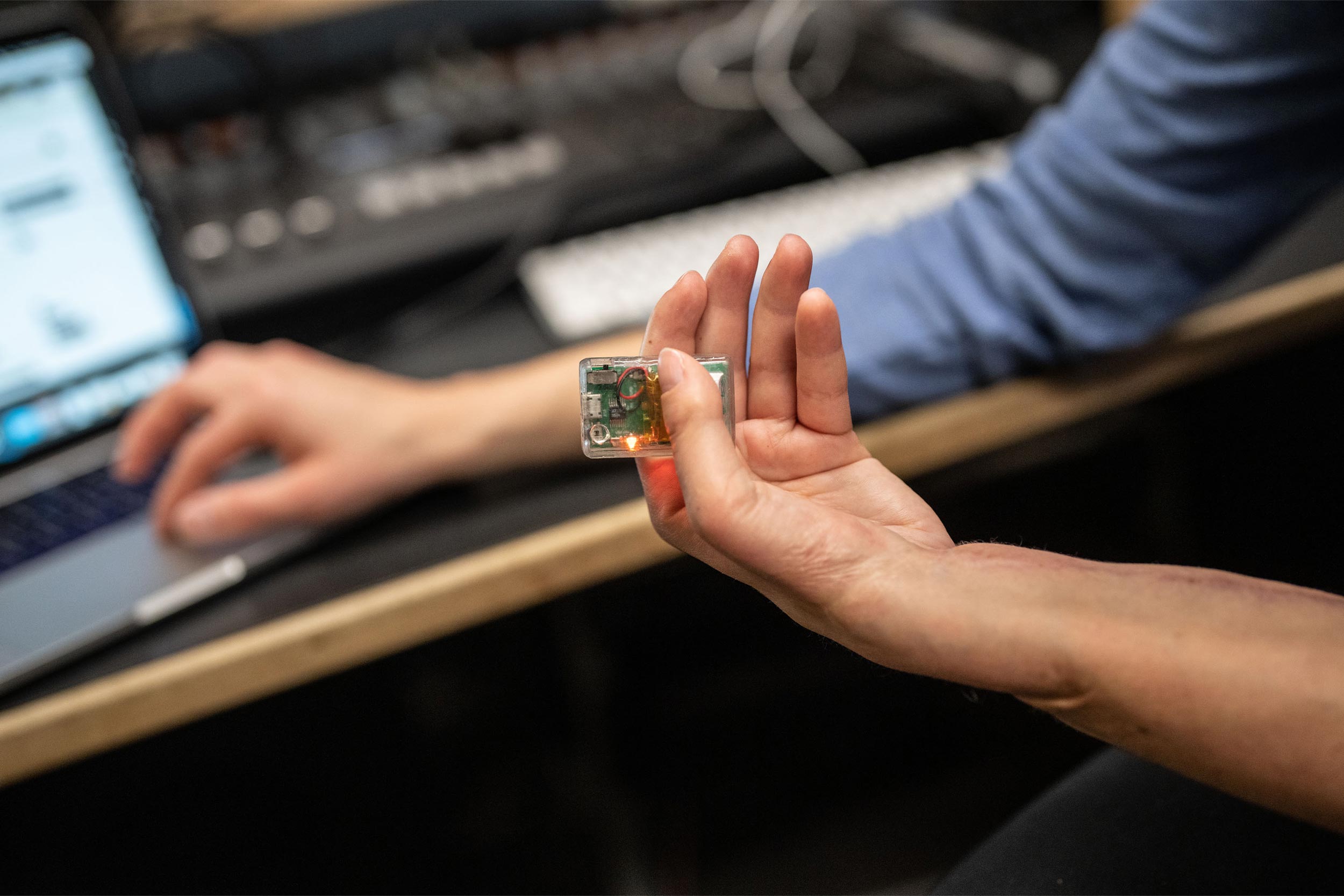Joyce described her first full-length album, “Breaking and Entering,” released in 2020, as her personal reckoning with having an acquired disability, describing her lyrics as abstract, not direct but metaphorical.
The new album, “Perspective,” resulted from a project she began in 2019 after well-known disability rights activist Judith Heumann, whom Joyce considers a mentor, challenged Joyce to be direct about her disability, noting that Joyce didn’t mention it in the bio on her website. She said if people don’t talk about their disabilities because they’re worried about the stigma, that creates more stigma.
“Years later, I can say I don’t care what people think, but I was afraid people would think it [the emphasis on disability studies] was coming out of nowhere compared to my previous work.
“‘Perspective’ shows a more intimate view of disability,” Joyce said, where she presents people’s voices and perspectives firsthand, instead of someone else’s external narratives about them.
She has received rave reviews for this latest work and from her UVA professors, too.
Ted Coffey, who chairs the Music Department and also works with computer technologies, described her work as “exceptionally well-considered – in terms of instrumental and other media resources, technical means and affective character. She composes spaces for others to be heard and seen and felt.”
Her faculty adviser, JoVia Armstrong, said, “I feel like I’m learning more from her than the other way around. Through our conversations, Molly has been taking me deeper into the lens of what it means to have a disability and how its meaning is different from person to person.
“Her music is quite compelling as well,” said Armstrong, an assistant professor who joined the music department this year. “It seems to make you focus on the words of disabled people about their meaning of disability. Just hearing their answers makes you think deeply about how much we as able-bodied folks in society take for granted.
“Her work ethic stands out as a student with very strong goals. She is highly determined,” Armstrong said. “She’s really on top of her game.”
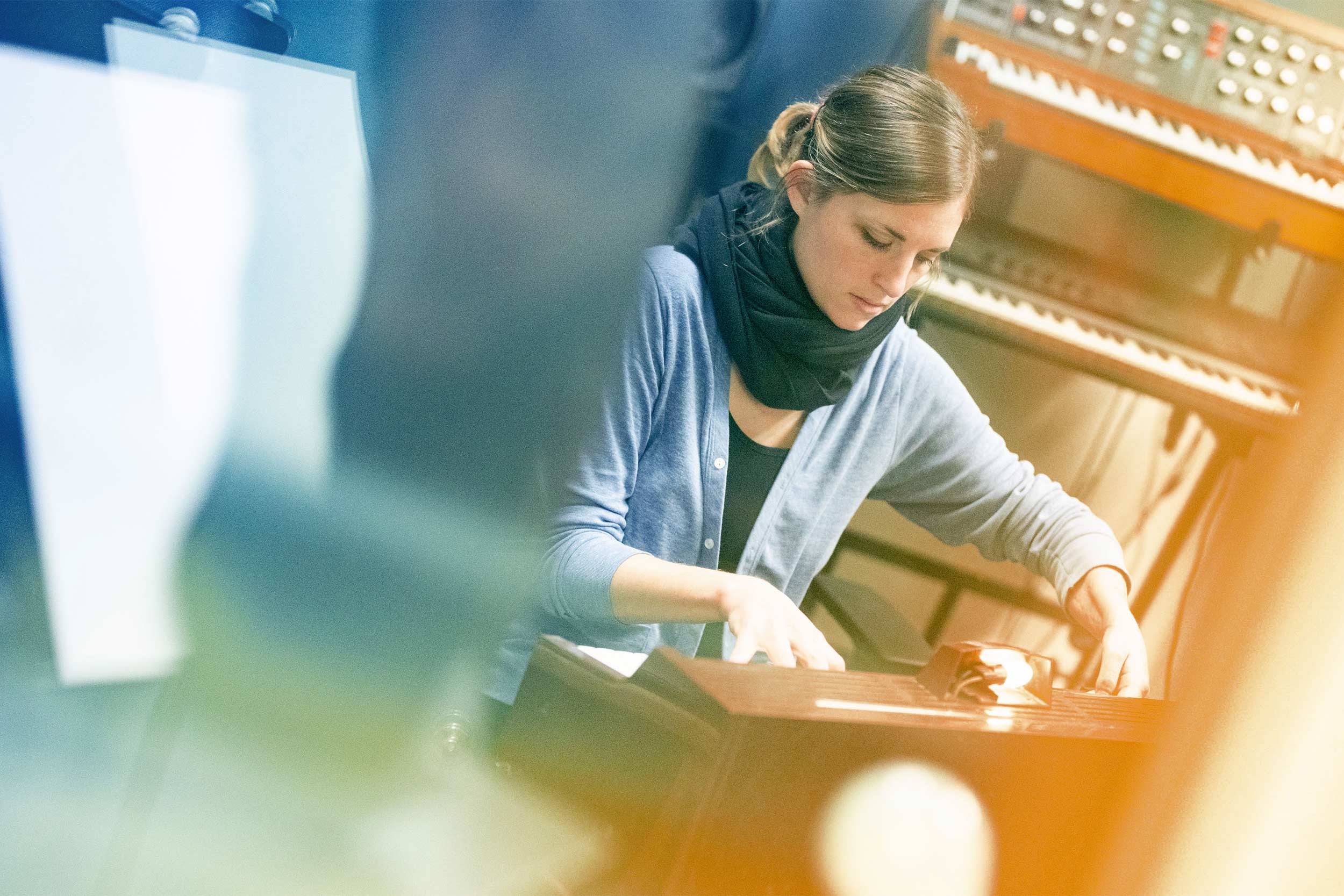
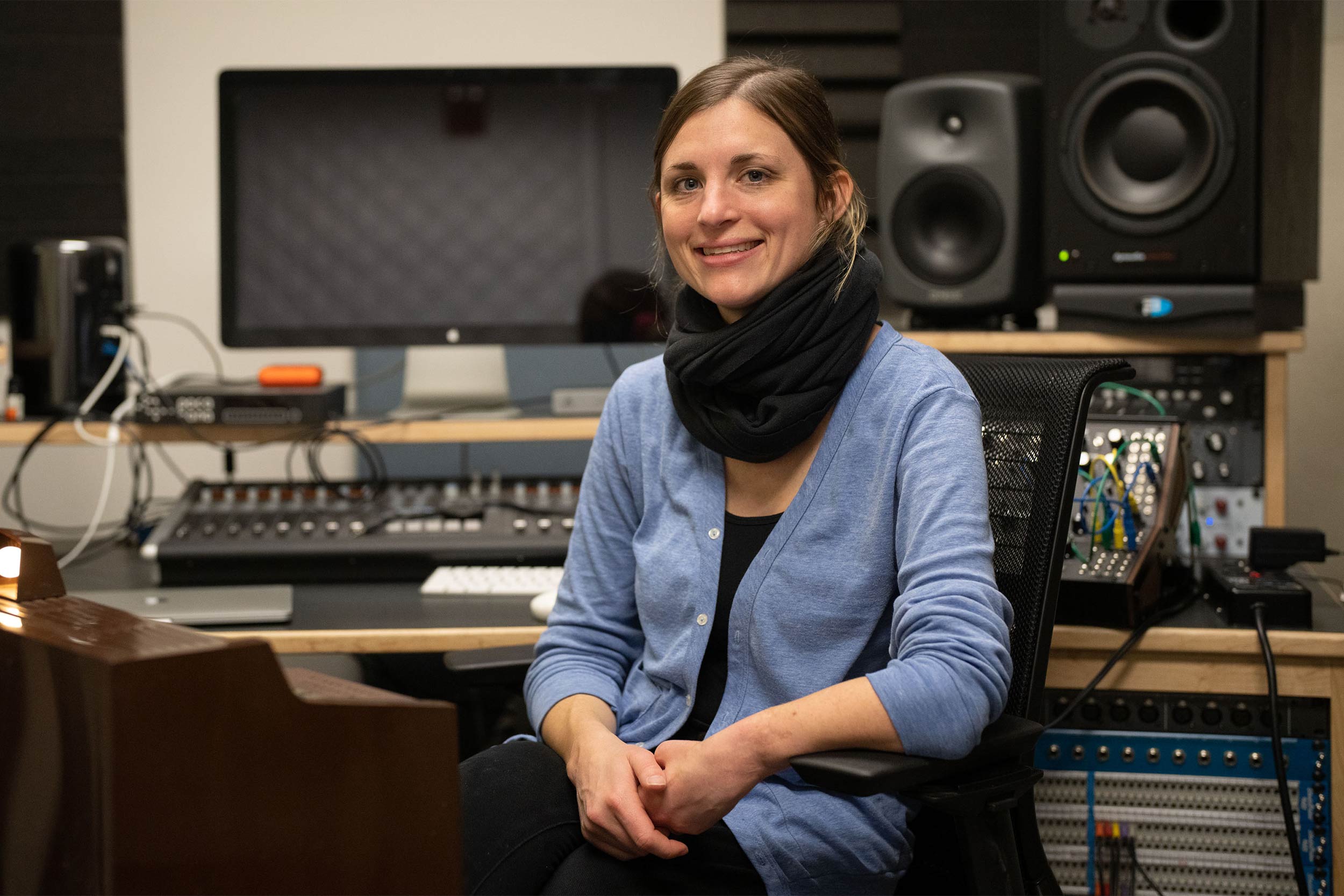
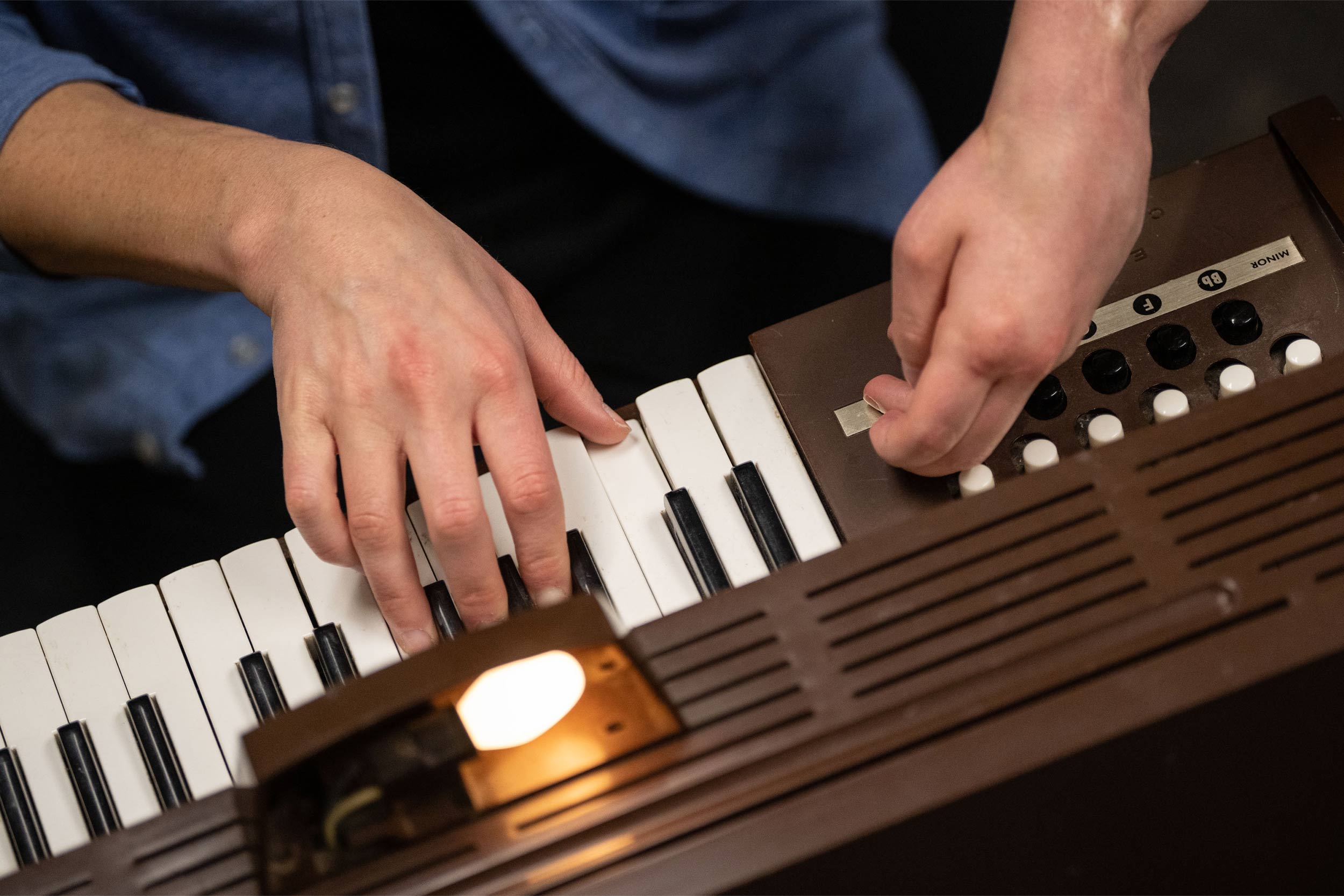
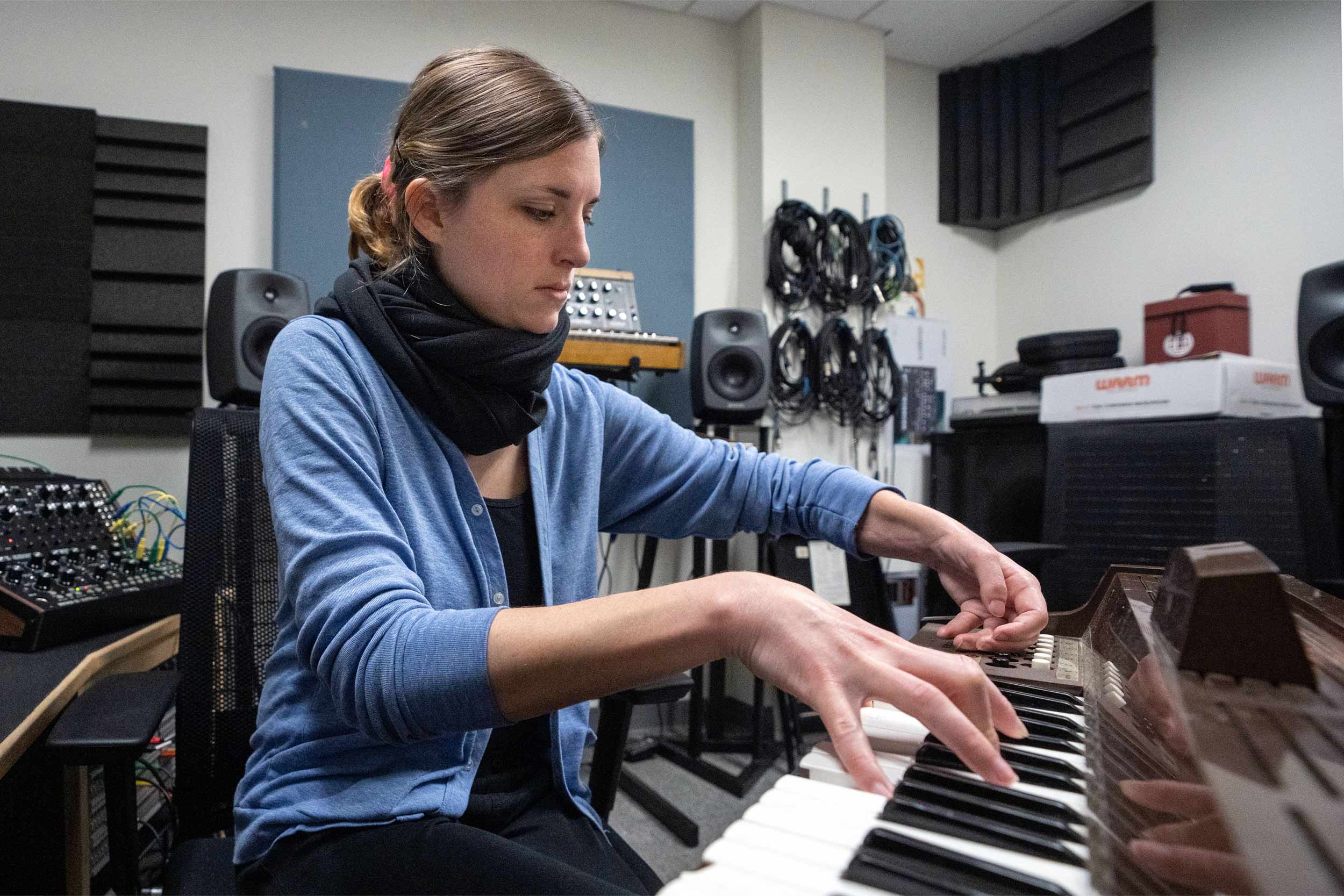

.jpg)
